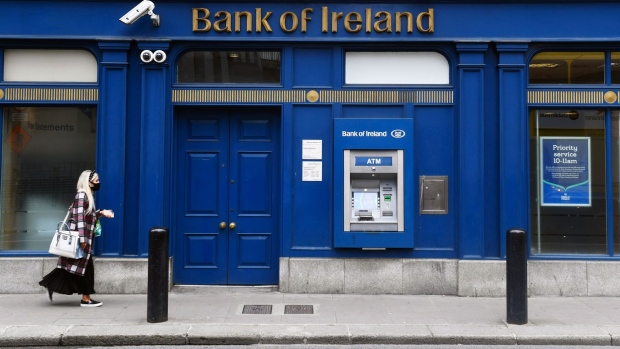May 6, 2022
Ireland Needs to Address Banks’ Crisis-Era Scars, IMF Says
, Bloomberg News

(Bloomberg) -- Ireland’s banking sector needs to be allowed to move on from the financial crisis in order to retain staff, the IMF said, as the debate over caps on bankers’ pay intensifies.
“It is important to resolve lingering issues” from the global financial crisis which include “recognizing banks’ need to retain talent, and noting the importance of divesting government ownership,” the IMF said in its latest Article IV assessment of Ireland. Addressing those issues would help “spur efficiency and innovation,” it added.
The IMF’s comments come as the nation’s banks struggle to retain senior executives, ostensibly because of limits on pay. The government capped pay at the three main retail banks, Bank of Ireland Group Plc, AIB Group Plc and Permanent TSB Group Holdings Plc as a condition of bailouts during the financial crisis. Salaries are capped at 500,000 euros while bonuses are effectively banned.
The caps are a “restraint” on “how we compete in the labor market,” AIB CEO Colin Hunt told reporters in Dublin on Wednesday. Bank of Ireland boss Francesca McDonagh is leaving her post in September while Chief Financial Officer Myles O’Grady left his role in March. Although McDonagh had an exemption from the cap she had criticized the restrictions and blamed them for O’Grady’s resignation.
Any move to lift the restrictions would be politically fraught. The government retains about 70% of AIB and 75% of Permanent TSB, though it has reduced its stake in Bank of Ireland to less than 5%.
The IMF also warned that while the economy remains strong, risks are “tilted to the downside” with threats including further supply chain disruption and uncertainties around corporate income tax changes and Brexit implementation.
©2022 Bloomberg L.P.





